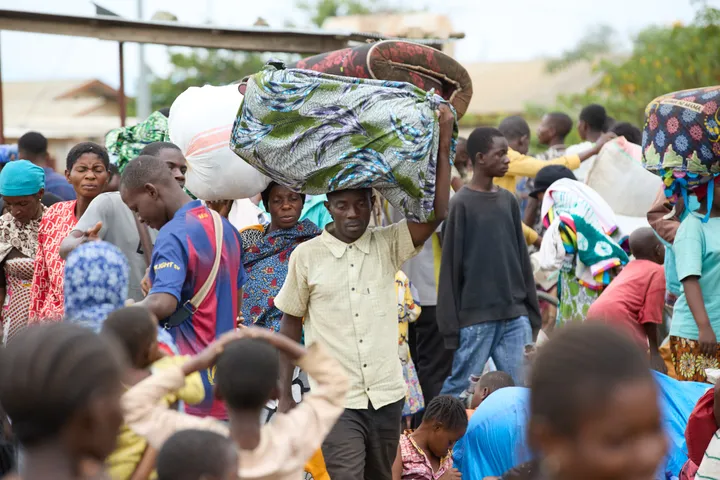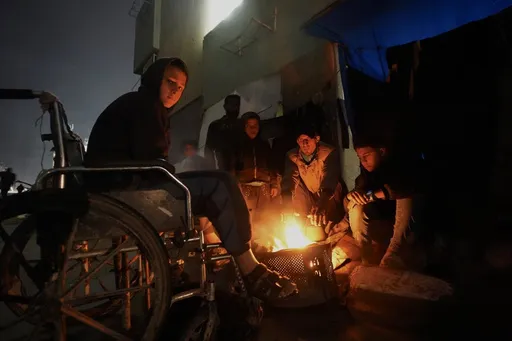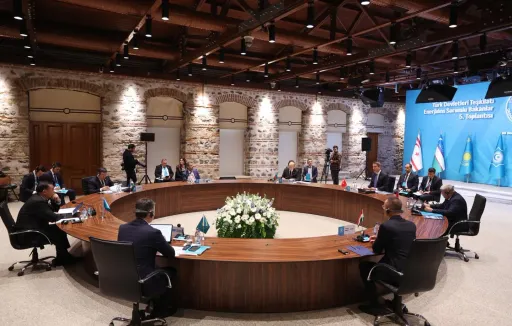By Kelvin Ayebaefie Emmanuel
Last week, the President of Nigeria Bola Tinubu, who is also the chairman of ECOWAS, dispatched a delegation to Niamey, led by former Nigerian head of state Abdulsalami Abubakar and the current Sultan of Sokoto Muhammad Sa’ad Abubakar whose rule used to oversee the republic of Niger before the coming of European colonisers.
The mission was to persuade Niger’s coup leaders to relinquish power. However, the diplomatic epoch did not yield the desired outcome. ECOWAS had imposed sanctions cutting-off Niger from the financial payments and settlement system used by its member countries.
Most notably, the regional bloc had threatened to use force if the junta failed to restore constitutional order by Sunday August 7.
Some analysts have said there are no implications for letting business as usual run in Niger, after all, coups happened in Guinea, Mali, Burkina Faso, Chad and Sudan, nothing happened.
Geopolitics
However, what they fail to understand or see, is the invisible hand behind the scenes understandably drumming up Anti-French and Anti-western sentiments in Francophone West Africa for years following leadership failures and the complete recklessness with which the American and French have managed the geopolitical economics in the region.
France aggregates 15% of the uranium produced in Niger for enrichment of its Isotopes through a process called fission to generate 68% of its total output at 3.6 gigawatts and the three billion euros it earns exporting electricity to the EU annually.
Niger as the 27th highest exporter of Gold with at 34.5 thousand metric tonnes according to the World Gold Council, exports the precious metals to France.
About 50% of the foreign reserves of Niger as well as other Francophone Sub-Saharan African countries are deposited with the French Treasury, a practice that has for decades contributed to high rates of poverty among Niger’s population of about 26 million with a per capita income of $1,330 and an inflation rate of 29%.
Proxy wars
What is becoming obviously clear is that West Africa is becoming a battleground for a proxy political and economic fight between Russia and China on one hand and France and the US on the other.
Several countries in the Sahel region including Burkina Faso, Chad, Mali, Niger, and also Nigeria have long been hit by insurgent groups linked to the so-called Daesh and al-Qaeda.
France has deployed thousands of troops over the years to fight along with regional and national militaries against these groups with their last base now in Niger after the former colonial ruler fell out with Mali and Burkina Faso juntas.
However, there have been accusations that the French troops have not been sincere in the fight against armed groups in the region with some locals saying they suspect the French are instead fueling the violence.
France has always maintained that its efforts are to stem the spread of the militants as part of global anti-terrorism campaign.
On the other hand, there is also the infiltration of Russia’s Wagner group into West and Central Africa. This has fueled rivalry between Russia and the West in the region.
The coup in Niger has brought this rivalry to the fore with France apparently frustrated given the thousands of Niger’s citizens that took to the streets supporting the coup, denouncing France and chanting pro-Russia slogans.
While Russia has somehow condemned the coup, it pointed out clearly that the use of force to reverse it was not a good option. However, France has supported regional bloc ECOWAS measures. These measures include the ‘’possible use of force’’ if the junta fails to restore constitutional order.
This is understandable for France because deposed President Mohamed Bazoum was remaining leader in the Sahel in good terms with France with Mali and Burkina Faso being clearly anti-France following military takeovers in the two countries.
Another economic element in the chaotic situation is a planned major gas pipeline project. The Trans-Sahara Gas Pipeline is expected to transport gas Nigeria to Algeria, and then connect the Trans Mediterranean pipeline to Italy in Europe.
The pipeline stretching thousands of kilometers, seeks to connect Nigeria’s gas production with EU’s gas demand, a move that Moscow would not want considering how much it loses from the embargo that was placed on the Nord stream II and I by Europe due to the Russian war with Ukraine.
With the current situation in Niger, this pipeline project is most likely to be another subject of rivalry between Russia and Western Europe.
Fuelling insecurity
The rivalry between the world powers have huge negative implications for the region. In the event of increased military rivalry between the world powers in the Sahel, the insecurity in the region might get even worse as armed groups could continue to spread their activities.
This is largely due to the possibility of more arms proliferation and the attention of the countries could be divided and diverted from the militant groups.
Given that the world powers are primarily concerned about their own interests, not necessarily the interest of West Africa, it is imperative for the West African countries to be more pragmatic and work for the interest of the region.
The situation remains delicate in Niger with ECOWAS threatening the military junta with force after imposing sanctions. The regional body insists on returning to constitutional order.
While it is crucial to insist on promoting democracy, there is also the need to be cautious not to allow external forces complicate the situation more. There must be speedy dialogue and regional cooperation with the interest of the region as the top priority.
The author, Kelvin Ayebaefie Emmanuel, is an Economist based in Abuja, Nigeria.
Disclaimer: The viewpoints expressed by the author do not necessarily reflect the opinions, viewpoints and editorial policies of TRT Afrika.
























